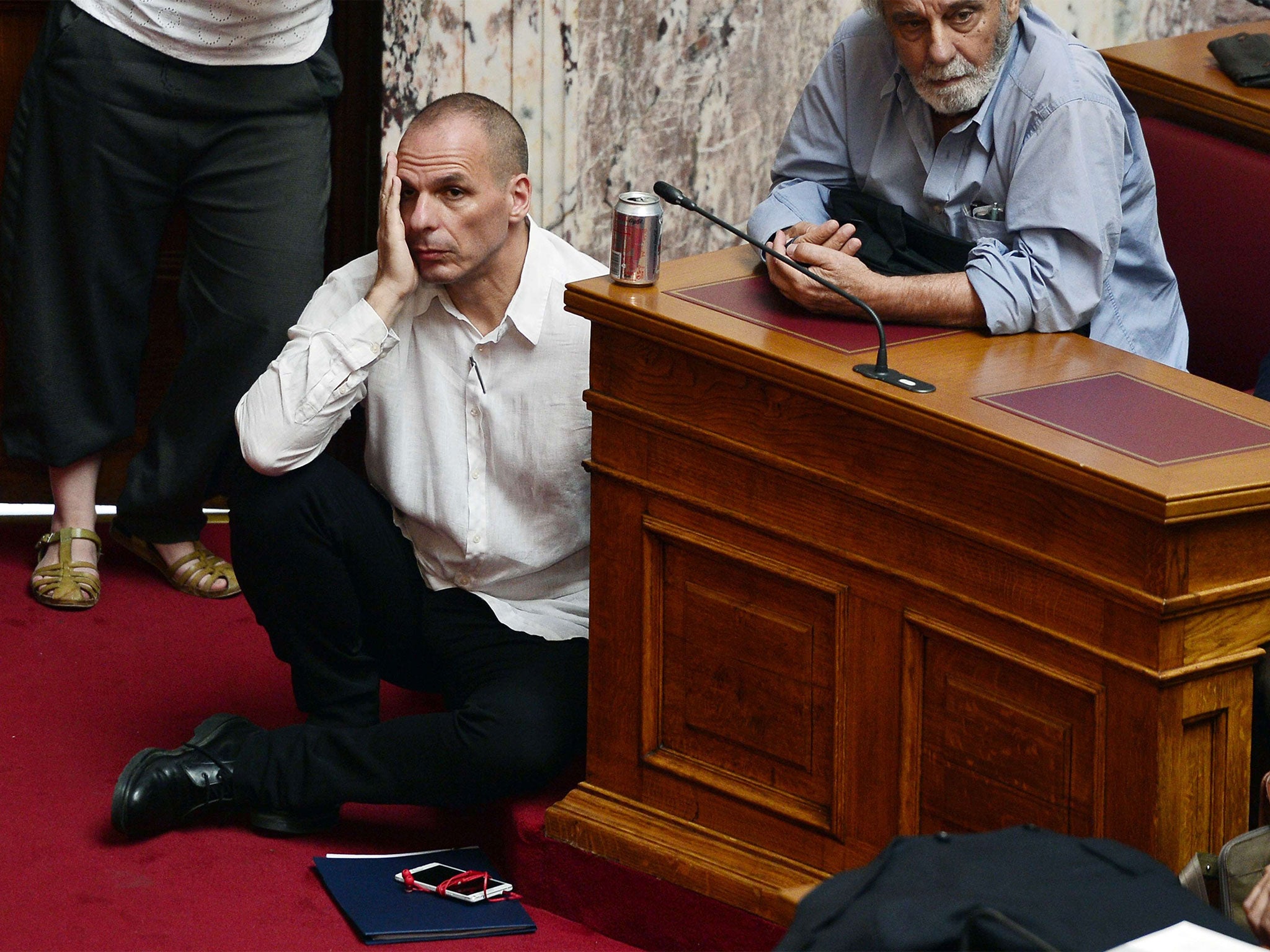Greek debt crisis: The picture that shows the pain of the nation falling apart
We can all sympathize with how Yanis Varoufakis feels. The years change, but the Greek crisis doesn't

This picture is worth approximately 317 billion words in Greek. That's how many euros its government owes, and how many euros it's going to start defaulting on if it doesn't agree on a new bailout in the next few days.
After all, you don't have to be an expert in game theory, like Greece's finance minister Yanis Varoufakis is, to know it's not good if he's crouching with his head in his hands right before midnight strikes on his country's solvency. But I think we can sympathize with how he feels. We do too. The years change, but the Greek crisis doesn't. It owes more than it can pay, so it needs Europe to give it the money to pay, well, Europe back. The problem, though, is Europe doesn't want to just hand over the money in such circular fashion without getting something else—pension and spending cuts—in return, and Greece doesn't want so many painful strings attached after it's already cut a lot and only seen its economy shrink by 25 per cent.
Now, both sides say they can't meet the other's demands, but that's how negotiations work. You try to make yourself look as implacable as possible, and hope that will make the other side cave. Until now, though, neither has. Both insist that compromise is impossible, but then, at the last minute, agree to a fudge that isn't quite a compromise but is enough of one to keep the game going. So what, if anything, has changed? Well, the politics. Greece's new ruling party, Syriza, won power on its pledge to end the old bailout, and might not have the votes to agree to a new one that's the same all but in name. They could, of course, just be saying that to try to get better terms, but it's certainly plausible that they're not.
But even if it's not a ploy, a deal still should be possible here. Greece says it won't cut its pensions any more than it already has—around 40 percent in total—but that it would be open to “reforming” them. That probably means it'd be willing to raise its pension age for future retirees, but not lower its pension payouts for current retirees. If Syriza can sell that to its harder-line members, Greece should be able to get the money it needs from Europe to pay its debts. But if it can't, then Greece really could default, and from there, who knows. In theory, Greece could stay in the euro after a default—although they'd probably have to stop people from moving their money out of the country—as long as the European Central Bank kept giving its banks the emergency loans they need to stay afloat. If the ECB pulled the plug, though, the only way Greece could get the money it'd need to give its banks would be to print it. In other words, to leave the euro and bring back its old currency, the drachma.
It's a real enough risk that, for the first time in a long time, there's a little contagion in Europe's bond markets. Now, back in 2012, panic about Greece would inevitably turn into panic about other countries. If Greece could leave the euro, markets wondered, who was next? But then the ECB started buying country's bonds and promised to do so in unlimited amounts if necessary—ending any self-fulfilling crises—and the result was that bad news about Greece stayed in Greece.
Well, at least until now. Now, it's nowhere near where it was before, but it's still worth pointing out that Spain and Portugal's borrowing costs have begun creeping up at the same time that Germany's are edging down. That's because political contagion has replaced financial contagion. In other words, markets have stopped worrying about which countries have bad economics, and started worrying about which countries have bad economics and bad politics (at least from their point of view). The answer: Portugal and Spain, both of which have ascendant anti-austerity parties. So if Greece did default, it might not be the non-event that Europe thinks it would.
And that's enough to make all of us bury our heads in our hands.
Copyright: Washington Post
Join our commenting forum
Join thought-provoking conversations, follow other Independent readers and see their replies
Comments